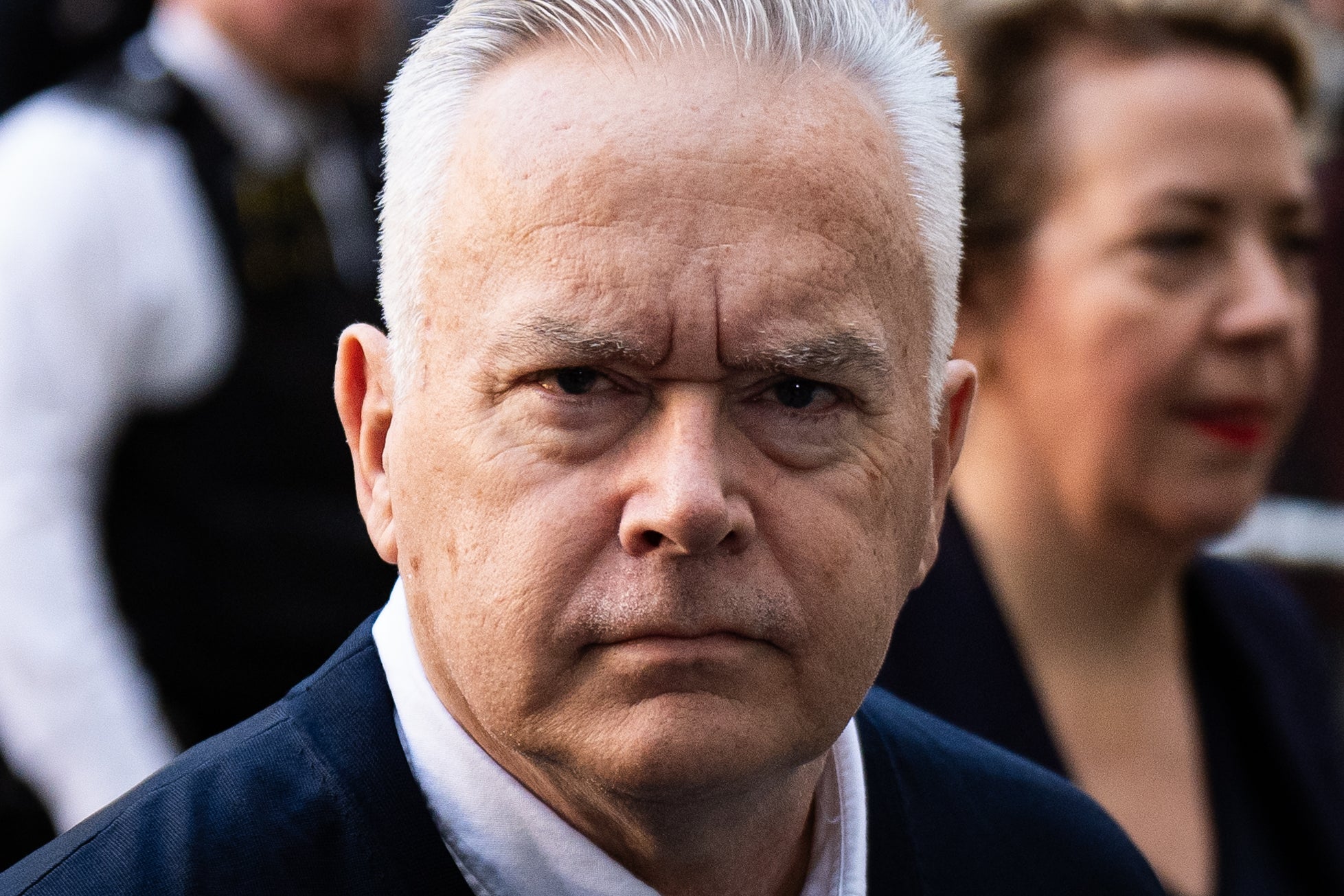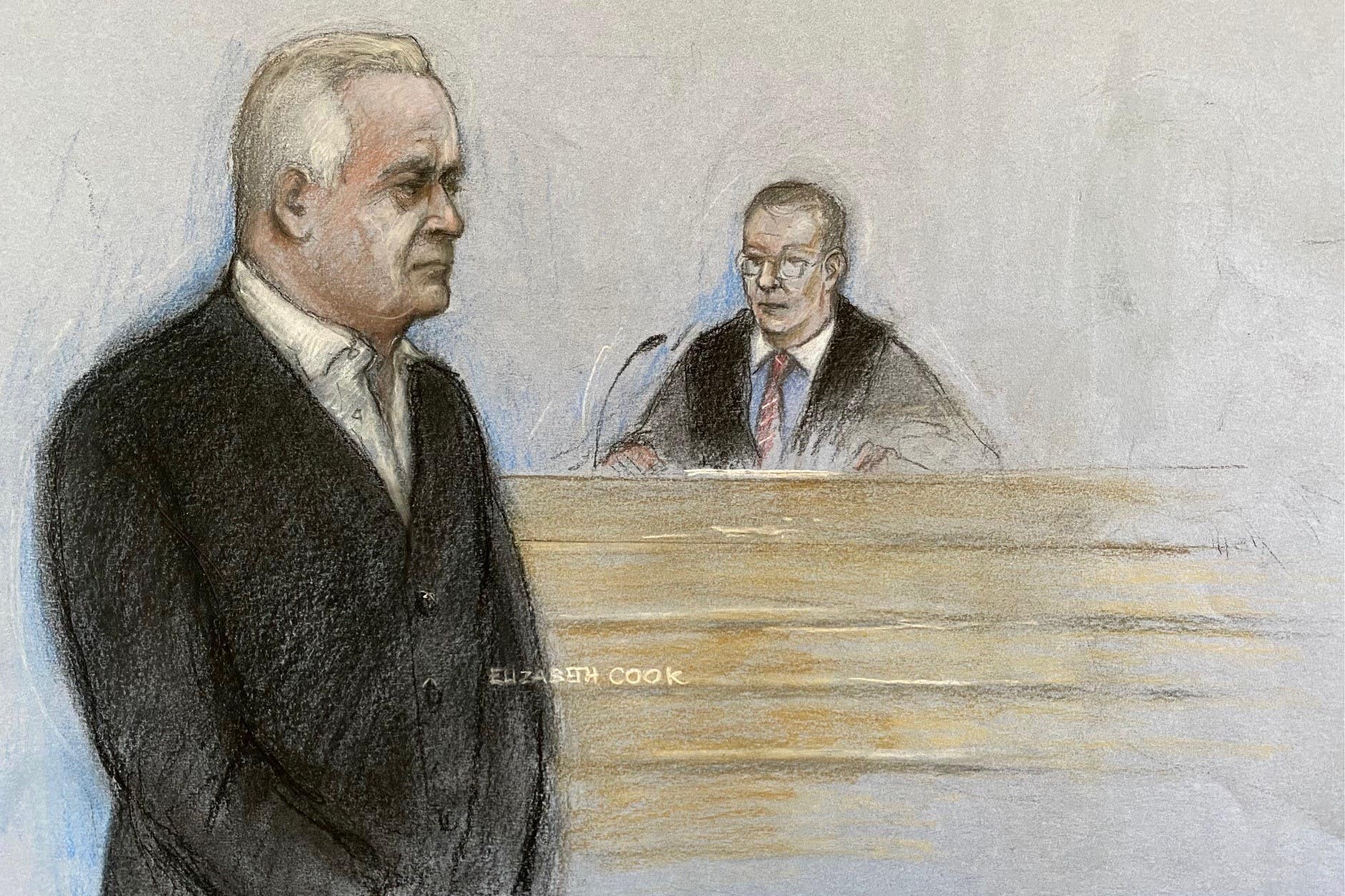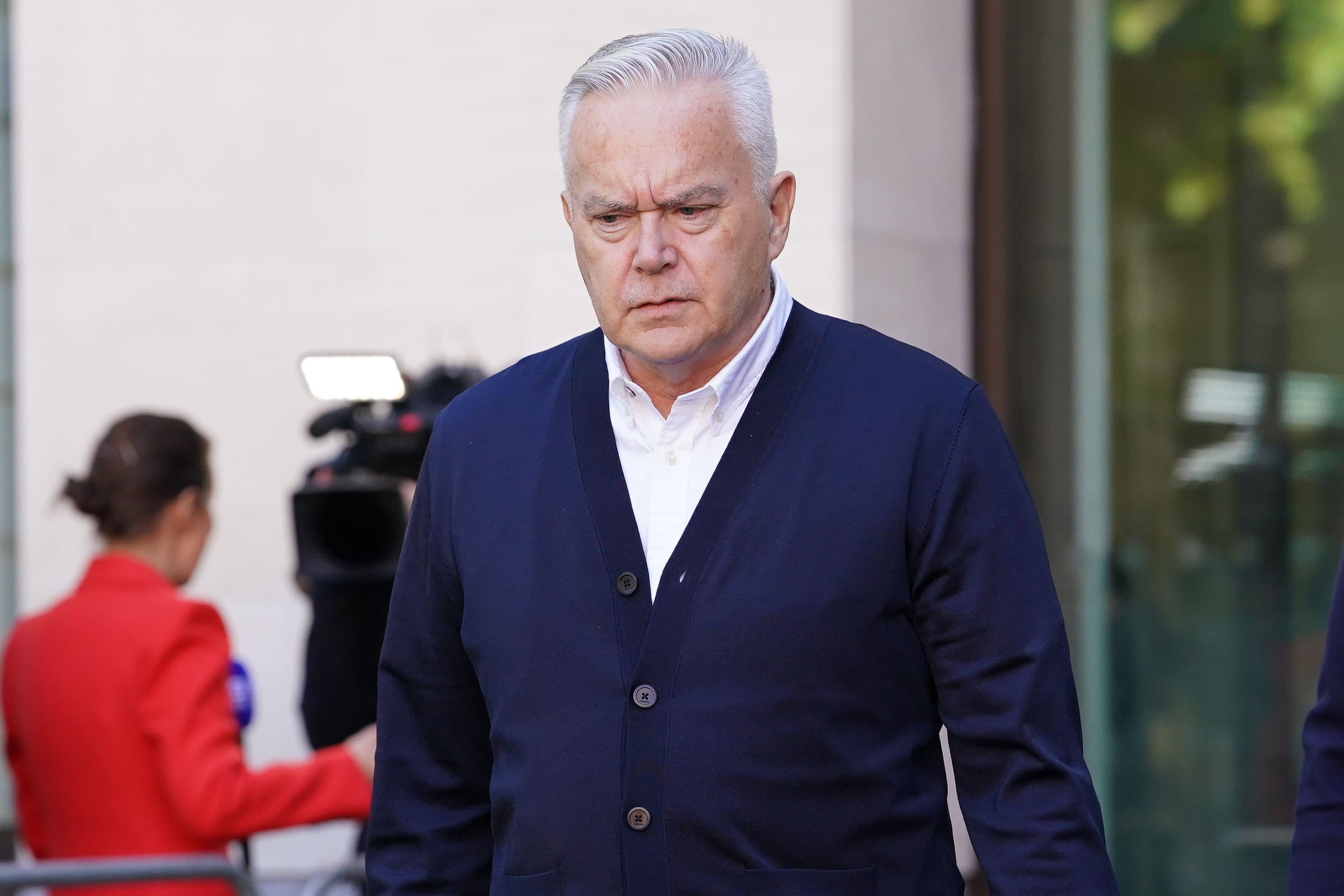Child abuse victims say Huw Edwards’ punishment is ‘nothing’ compared to their lifelong trauma
Exclusive: Victims of abuse say they live with the fear of being recognised due to cases like the disgraced BBC presenter’s

Child abuse victims have revealed the horrifying impact of appearing in illegal images shared by paedophiles.
They have spoken out in the wake of the Huw Edwards scandal, that this week saw the disgraced BBC presenter sentenced for accessing indecent images of children as young as seven. The 63-year-old was spared jail and handed a six-month suspended sentence on Monday, having admitted to three charges of making indecent photographs after he was sent 41 illegal images by now-convicted paedophile Alex Williams over WhatsApp.
Chief magistrate, district judge Paul Goldspring said: “The impact of child sexual abuse involving imagery can be severe and lifelong, with the potential for children to be re-victimised each time images are viewed.”
In a series of harrowing testimonies shared exclusively with The Independent, survivors have laid bare the devastating toll that viewing child abuse like those seen by Edwards has on victims’ decades after the physical abuse has ended.

One victim, who is being supported by the Marie Collins Foundation, said: “The sentence that Huw Edwards received was part of a list of reasons I felt I couldn’t come forward. A six-month suspended sentence is nothing in comparison to the lifelong trauma and anxiety levels of the victims.”
Explaining the daily trauma of wondering who has viewed the images of your most traumatic experience, the survivor added: “Nothing strikes fear into my heart like the sentiments in the sentences ‘do I know you from somewhere?’ or ‘I swear I saw a picture of you somewhere,’ from people I am convinced I have never seen before.
“I still struggle to trust members of society that are of high or well regarded, or people that I have known for years because of what I went through at the hands of the men who groomed and exploited me.”
A mother, whose son attempted suicide after being blackmailed into meeting his abuser’s sick demands for images, said the once-trusted newsreader’s downfall was a betrayal which “shakes your trust to the core”.
“What’s even more terrifying is knowing that Huw Edwards is just one name among many,” she told The Independent.
“For every conviction, how many more go unnoticed, unreported, or unpunished? It creates this overwhelming sense that predators are everywhere, and it’s hard to feel like you can ever let your guard down.”

The mother, who now campaigns with the NSPCC, revealed she is haunted every day by the fear that images of her son’s abuse are being replayed by others who take pleasure in his suffering.
“The idea that there’s a permanent digital record of his abuse - something that could be passed around - is a trauma in and of itself,” she added.
Another survivor, who was groomed aged 13 by an older man posing under a false identity online before he continued the sexual abuse in person, said the images he took were used to silence her from speaking out.
“Imagine the most private, vulnerable moment of your life. Now imagine having to share that with other people,” she told The Independent.
“That there’s a photo or a video of it for them to watch. That somebody might be getting sexual gratification or some other pleasure from seeing them.
“Imagine walking down the street and looking at the faces that pass you and having to wonder ‘have you seen images of me being sexually abused when I was 13? Do you recognise me?’”
Others said the existence of images which are out in the world “forever” and can be shared, or even manipulated by AI, devastates victims long after their physical abuse has ended.
“This presents a recurrent, permanent trauma that has no end, a constant fear that these images may find their way back to your life, that you will be re-traumatised by them years later,” a survivor said.
This fear adds “another level of insecurity, fear and shame” as they try to move on, another survivor said.
“It can take years to overcome - impacting employment, education and can deny the victims many opportunities for quality of life,” they added.
A spokesman for the Marie Collins Foundation, which supports survivors of technology-assisted child sex abuse (TACSA), said it is myth that online crimes have less impact than physical abuse.
“We know from our direct work supporting victims of this crime that this is not the case,” they added.
“This is evidenced through research, with findings indicating that the consequences of TACSA is at least as severe and harmful as offline child sexual abuse.
“Where images or videos of the abuse are created, the permanency and lack of control over who sees them leaves significant and long-term impacts for victims and survivors. They are revictimized every time these are viewed. This is not a victimless crime.”
Derek Ray-Hill, interim chief executive of the Internet Watch Foundation, added: “Edwards’ sentencing should hammer home the truth that viewing sexual images of children is not a victimless crime.
“Survivors of child sexual abuse suffer repeatedly every time images and videos of their abuse are distributed online and it is wrong to believe spreading this material is anything other than harmful, hurtful and dangerous.
“Analysts at the IWF see first-hand how offenders endlessly circulate and share imagery of victims for their own enjoyment, which re-victimises the child long after the physical suffering has ended.”
